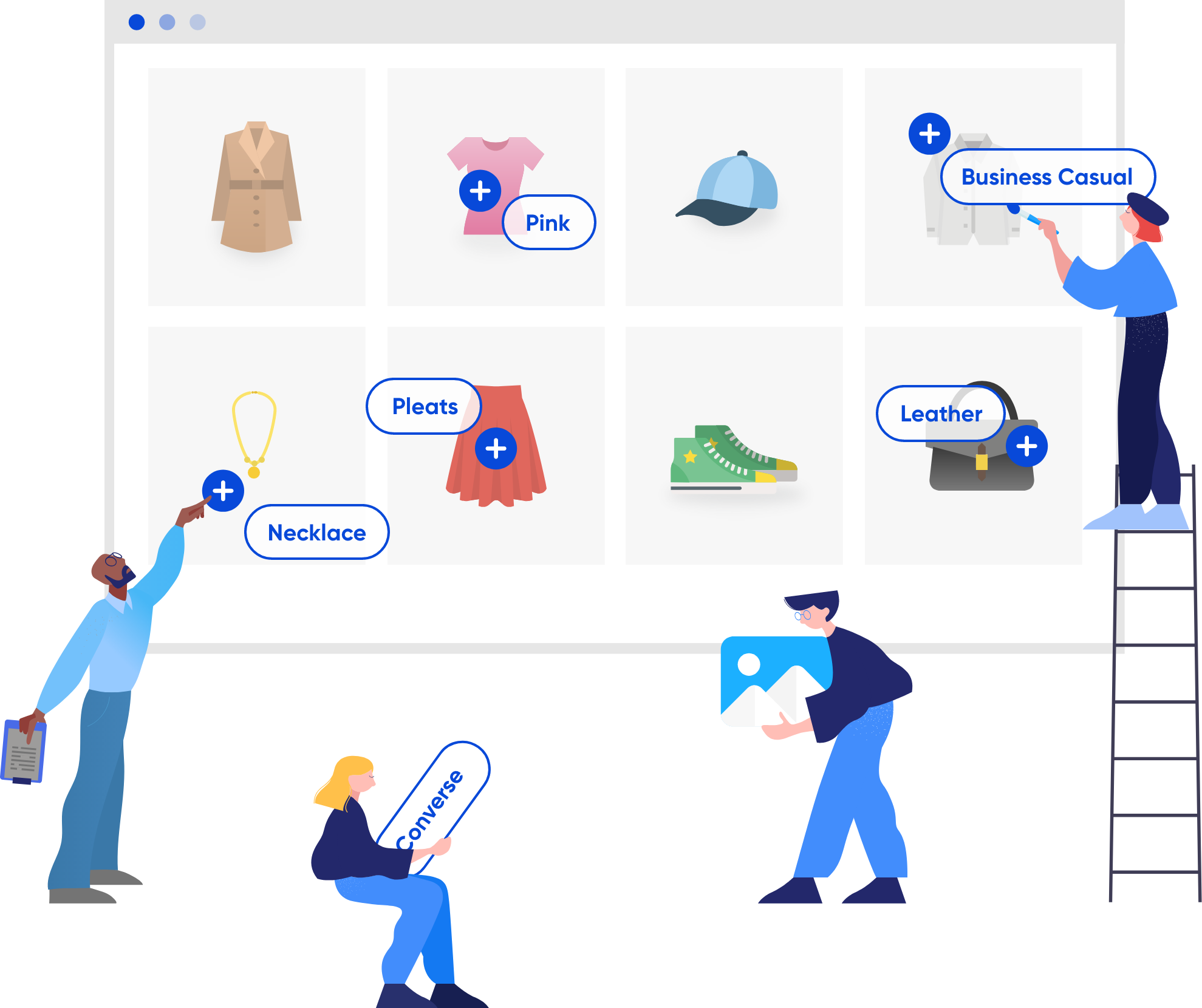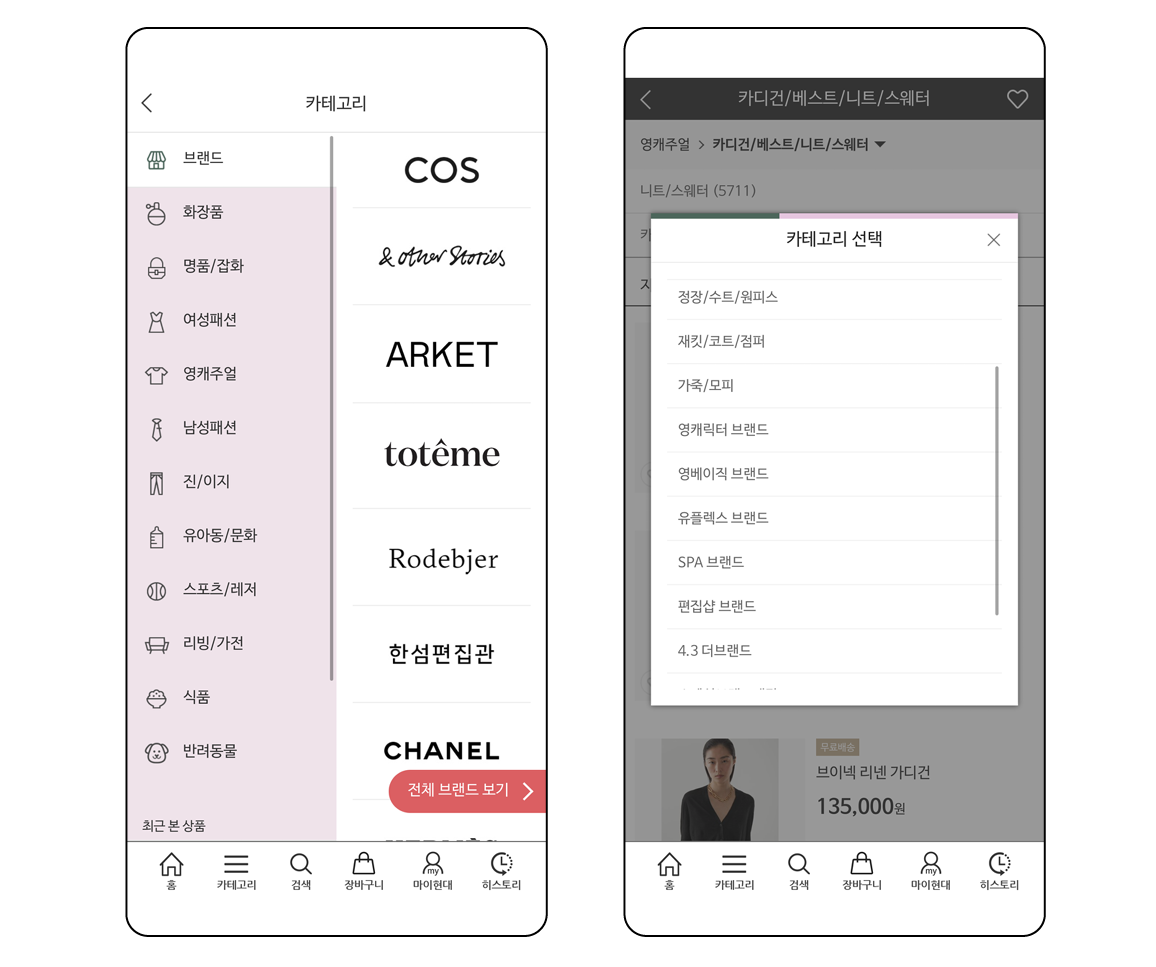We were able to systematically manage products through OMNICOMMERCE solutions and enhance online shopping experience through Visual Recommendations.
- THE HYUNDAI, PIC -
Problems the company wanted to solve
- The Hyundai wanted to solve the problem of poor customer satisfaction arising from the low accuracy of manually managed product data.
- They also had a problem of having low work efficiency due to the lack of data experts.
Results after integrating the Automated Product Tagging solution.
- Significantly reduced attribute tagging errors.
- Product filters have been diversified.
- Succeeded in promotion by using highly accurate attribute data tagged by AI.
Amidst the fashion e-commerce boom, one of the three largest department store chains in South Korea, The Hyundai, needed a competitive edge as they looked to transition to the digital space. The brand was attempting to digitally transform their in-person department stores by bringing all of their retail shops online.
Point 1. Resolve product attribute errors
Every e-commerce owner has experienced delivering sub-par customer satisfaction service due to inaccurate product information. The Hyundai was not an exception. They’ve experienced the same difficulty during the digital transition of their customer shopping experience from offline to online due to errors in their product data. To solve this issue, they’ve integrated the AI-powered Automated Product Tagging solution.

- AI-enhanced data technology.
The Hyundai’s inaccurate and insufficient product information due to the absence of sophisticated data entry technology was resolved with AI-powered technology. With AI, they were able to tag approximately 1,000 attributes within product images.
- Product tagging in multiple languages
The Hyundai was also able to automatically add product attribute information in multiple languages. Their employees’ work efficiency has been boosted because our technology made it much faster to add new products.
Point 2. Provide various types of product filters
Because product information was registered by inexperienced practitioners, The Hyundai's products often did not contain sufficient descriptions and tags. This resulted in misclassified products and poor search accuracy. Automated Product Tagging has improved their product attribute classification standard and solved issues with inaccurate recommendations.

- Refined search filters and improved search accuracy.
The Hyundai increased search accuracy using the rich product information retrieved from the solution. The filters were more deeply classified into attributes like ‘material’, ‘pattern’, ‘style’, and ‘detail’ to help customers find items they want easily.
Point 3. Successful promotion planning
Before introducing the solution, the merchandisers had to manually select promotional products while planning events. This was very time-consuming and complicated due to the lack of or insufficient product metadata. However, after automating tagging and registration, merchandisers were able to easily select the right products based on product metadata classified into consistent criteria, and as a result, the resources and time spent on planning promotional events have been significantly reduced.






